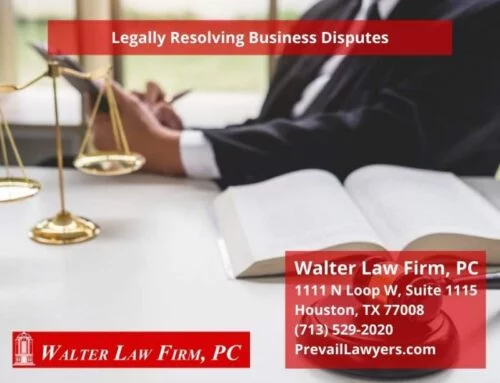PART 2: What Happened? Discovery & Mediation
In most cases, after an answer is filed, both sides need to do “discovery” before the case is ready for trial. Discovery is just like it sounds – each side has the right to ask questions and obtain documents to determine what the other side would say if the case were tried. The purpose of all discovery is to prepare for trial – to gather information about the other side, and to make sure that you have all the evidence needed to prove your claim or defense. Discovery narrows the focus of the work necessary to prepare for trial, reduces the risk of a nasty surprise at trial, and sometimes makes a trial unnecessary. Generally, both sides will do written discovery first, because it’s less expensive and an efficient way to determine what facts the parties agree or disagree on.
There are several types of written discovery:
- Request for Disclosure
These are a specific set of written questions that are set out in the Texas Rules of Civil Procedure. Information such as the names, addresses and phone numbers of persons who have any knowledge about the case, expert witnesses (witnesses with specialized knowledge and opinions), information about damages and insurance coverage are included in the disclosure. A Request for Disclosure will be filed by both sides in virtually every case. - Interrogatories
These are written questions that are more tailored to the type of case, and the specific facts and circumstances involved. Information such as the types of repairs performed on property, maintenance schedules, payments made, and the types of records that are kept may be requested through interrogatories. - Request for Production
These are written requests for copies of documents. A party cannot be required to create a document, but can be required to produce a documents in their possession or subject to their control, to the other side. Documents such as letters, indexes, lists, calendars, canceled checks, receipts, medical records, photographs, videotapes, and recordings, as well as electronic documents may be requested. - Request for Admissions
Request for Admissions allows a party to require the other to either admit or deny certain allegations and statements of fact, which helps to narrow the issues in dispute.
Deposition
After the first round of written discovery is completed, in some cases oral depositions will be necessary to develop more detail about the claims and defenses. A deposition is a lawyer’s opportunity to ask questions of a witness, under oath. The witness does not need to be a plaintiff or defendant, but can be merely someone who has relevant information to the case. In Texas state courts, the witness’s testimony at his deposition may be read into evidence at trial. This becomes important when dealing with a witness who is out of town frequently, is ill, or is difficult to schedule, such as a doctor. The deposition can be scheduled at a convenient time, but trial may not be. If you are asked to give your deposition, your lawyer will want to meet with you a couple of days before to prepare you properly and make sure that you understand the process and know what to expect.
Mediation
Mediation is a process which helps to settle cases, and most courts in Harris County will require that cases go to mediation at some point before trial. The parties and their attorneys will spend at least ½ a day with a mediator – a lawyer who has been to special training to help parties settle their cases without trial. Ideally, the mediator should have experience in the type of case involved, so that he or she can give each party an independent, realistic view of the strengths and weaknesses of their case, the benefits of settlement, and the risks they will face at trial.
Typically, everyone meets in a conference room for an opening session – the plaintiff says why they believe they will win, and the defendant says why they believe they will win at trial. The lawyers speak for the parties, but often the mediator will ask the parties if they have anything to add. Be careful – even though what is said at mediation is not admissible at trial, you may be informing the other side of something they didn’t know about. Then the plaintiff and their attorney go to one room, the defendant and their attorney goes to another room, and the mediator talks to each in turn ,trying to arrive at a mutually acceptable result. Most cases settle before trial, with or without a mediator, but a good mediator can save both parties lots of time, money and stress.






